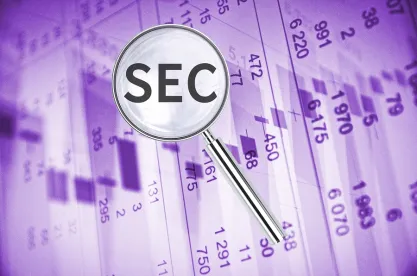In a closely-watched case, on September 30, 2020, federal judge Alvin Hellerstein ruled that Kik’s $100 million two-phase coin offering resulted in a sale of unregistered securities in violation of Section 5 of the US Securities Act of 1933. Kik raised approximately $50 million through an initial private pre-sale effected via a Simple Agreement for Future Token, or SAFT, and the remainder through a subsequent public offering of the Kin token. Concluding that the two-phase offering constituted a single offering, Judge Hellerstein found that Kik’s offering created a security subject to federal securities laws. Specifically, the court found that Kik met the so-called Howey test because Kik planned to use the proceeds from the offering to fund Kik’s operations and buyers of Kin had a reasonable expectation of profit from their purchase.
Under the Howey test, an investment contract, and thus a security, will exist if the court finds (i) an investment of money, (ii) in a common enterprise, and (iii) with profits to be derived solely from the efforts of others. In this case, the parties agreed that the first prong of Howey was met, but disagreed as to whether Kik satisfied prong two (a common enterprise) or (an expectation of profits solely from the efforts of others). Acknowledging a lack of precedent, Judge Hellerstein concluded that Kik satisfied both.
According to the court, Kik established a common enterprise because the success of Kik’s messaging platform drove the demand for Kins, thereby dictating investors’ profits. In particular, the court determined that Kik “pooled proceeds from its sales of Kin in an effort to create an infrastructure for Kin, and thus boost the value of the investment.” By pooling investments to increase the range of goods and services that holders could utilize and buy and sell with Kin, the court concluded that a common enterprise was established.
Next, the court ruled that prong three of Howey was met because buyers of Kin in both the pre-sale and post-public sale expected to profit from the efforts of Kik’s management. According to Judge Hellerstein, Kik, through its CEO and otherwise, made multiple public statements marketing Kin’s profit-making potential. The court noted a speech by the Kik CEO explaining the “role of supply and demand in driving the value of Kin: Kik was offering only a limited supply of Kin, so as demand increased, the value of Kin would increase, and early purchasers would have the opportunity to earn a profit.”
The court also found that although theoretical consumptive uses for Kin existed, such uses would materialize only if the Kik offering was successful and demand for Kin grew. The success of the Kik offering, therefore, relied heavily on “Kik’s entrepreneurial and managerial efforts.” To support that finding, the court cited the Kik’s white paper, which offered to “provide startup resources, technology, and a covenant to integrate with the Kin cryptocurrency and brand.” The court also looked to the Kik’s CEO’s statements explaining “Kik’s unique incentive to increase demand for Kin because it retained for itself 30% of the tokens created.”
The court rejected Kik’s argument that the private presale offering was exempt from registration under Rule 506(c) of Regulation D. According to the court, both phases of the offering constituted a single, integrated offering because the pre-sale offering of the SAFT and the post-public sale of Kin tokens were part of a single plan of financing and made for the same general purpose. The court also noted that the proceeds from both sales went toward funding Kik’s operations and building the ecosystem for Kin. Accordingly, the court determined that Kik’s distribution of Kins was a securities offering for which no exemption was available and, therefore, the unregistered offering was in violation of the federal securities laws.
The order calls for the SEC and Kik to jointly submit a proposed judgment for injunctive and monetary relief by October 20. Kik has stated that it intends to appeal the ruling, but the court’s opinion provides further clarity to crypto entrepreneurs attempting to structure a legally compliant digital security offering. It is no doubt a disappointing outcome to those who had hoped the judge would upend the SEC’s approach to the regulation of digital securities.
Chelsea Lomprey is the author of this article.



 />i
/>i

